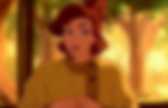

Cthulhu Mythos. A sketch of the fictional character Cthulhu, drawn by his creator, H. P. Lovecraft, May 11, 1934 The Cthulhu Mythos is a shared fictional universe, based on the work of American horror writer H. P. Lovecraft. The term was first coined by August Derleth, a contemporary correspondent of Lovecraft, who used the name of the creature Cthulhu—a central figure in Lovecraft literature[1] and the focus of Lovecraft's short story "The Call of Cthulhu" (first published in pulp magazine Weird Tales in 1928)—to identify the system of lore employed by Lovecraft and his literary successors. Authors writing in the Lovecraftian milieu use elements of the Mythos in an ongoing expansion of the fictional universe.[3] History[edit] Robert M. First stage[edit] An ongoing theme in Lovecraft's work is the complete irrelevance of mankind in the face of the cosmic horrors that apparently exist in the universe.
There have been attempts at categorizing this fictional group of beings, and Phillip A. David E. Emerald.pdf. Julia Kristeva ou la traversée des frontières. « De la petite étudiante géniale, mais barrée partout au départ (sauf par Lévi-Strauss et Barthes), à l’universitaire célèbre dans le monde entier, dont le surnom, chez nous, est devenu « Honoris Causa », à la psychanalyste stricte, à l’essayiste du « génie féminin », la voie est vertigineuse, courageuse, mélodieuse, gracieuse.
C’est la femme la plus intelligente que j’ai rencontrée. »Philippe Sollers, Un vrai roman, Mémoires, 2007. « Je citerai Saint-Augustin pour définir ce que je ressens profondément : « In via, in patria ». C’est-à-dire : la seule patrie, le voyage. Dans mon roman Meurtre à Byzance, je fais dire d’ailleurs à l’héroïne : « Je me voyage ». Pour moi, il n’y a pas d’identité fixe. »Julia Kristeva, Le Courrier de Russie, 31-12-10.
Julia Kristeva, art press, mai 1974. Arrivée en France en décembre 1965, Julia Kristeva est devenue très rapidement une des intellectuelles les plus pertubatrices du paysage culturel français. L’étrangère par Roland Barthes Julia Kristeva. 1. 2. 3. Transfuge - Magazine culturel - Littérature et Cinéma. L'association - William Blake - L'Association à Nérac. William Blake, le « génie visionnaire du romantisme anglais ». William Blake, le « génie visionnaire du romantisme anglais ». Art, 11.06.2009, 15 commentaires William Blake, Elohim creating Adam (1795-1805, Tate) A l’occasion de la rétrospective consacrée à William Blake au Petit Palais, qui s’achève le 28 juin, j’aimerais survoler l’œuvre fascinante de cet artiste souvent incompris, entre fou et génie.
Dès la fin du 18ème siècle, se répand en Europe un mouvement de réaction contre le néoclassicisme et le rationalisme des Lumières, on élève l’intuition, les passions, ainsi que l’imagination, contre la raison. Ce mouvement, appelé romantique, s’accompagne d’un culte de la sensibilité, et d’une profonde nostalgie pour le passé, en réaction contre la montée progressive de l’industrialisation. On the occasion of William Blake’s art retrospective exhibit at the Petit Palais which culminates on June 28th, I’d like to do a quick recap on the fascinating work of this oft-misunderstood, on-the-edge-of-madness-and-genius of an artist. Dans la même catégorie : Fais pas ci fais pas ça. Tu mourras moins bête. Vacarme - entre art et politique, entre savants et militants.